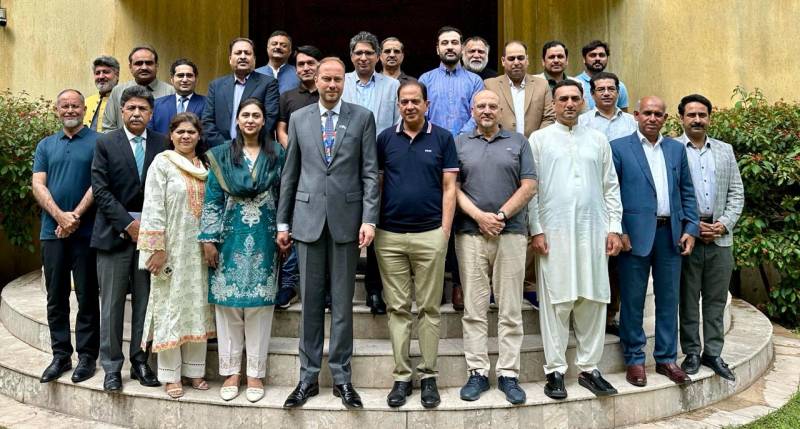
If Pakistan wishes to retain its Generalised Scheme of Preferences Plus (GSP+) status from the European Union, it must urgently improve conditions for textile industry workers.
“With Pakistan’s economy heavily reliant on textile exports, it is imperative to enhance working conditions in this sector to maintain our GSP+ status,” said Geir T. Tonstol, the country director of the International Labour Organization (ILO), on Thursday at a high-level consultation under the BRIDGE project with media leaders at the ILO office in Islamabad. The event had been convened in collaboration with the Employers’ Federation of Pakistan (EFP)
The event focused on the critical role of the media in raising awareness, addressing forced labour, promoting fair recruitment practices in Pakistan, influencing public opinion, and driving policy reforms to combat forced labour in the informal sector and ensure ethical recruitment practices. The consultation brought together senior journalists from 25 major media organisations across the country.
Tonstol stressed the importance of complying with 27 international labour, human rights, and environmental protection standards.
Dr Faisal Iqbal, the ILO's National Project Coordinator, highlighted the media’s pivotal role in raising public awareness about forced labour and advocating for fair recruitment practices. “Media can be key influencers in shaping public perceptions about forced labour and labour migration,” Dr Iqbal stated, emphasising the media’s responsibility in driving meaningful change.
Employers’ Federation of Pakistan Secretary General Syed Nazar Ali Shah noted that the workshop aimed to foster a deeper understanding among media professionals of the critical issues surrounding forced labour and fair recruitment. He also stressed the importance of collective action in tackling these issues, particularly in the informal sector.
In Pakistan, forced labour remains a significant challenge, particularly in the informal sector. According to various estimates, between 3.4 million and 4.3 million individuals are trapped in forced labour situations within the country.
ILO’s latest global estimates indicate that nearly 28 million people worldwide are affected by forced labour, generating illegal profits of approximately $236 billion annually.
Aoun Sahi, a media trainer, provided an overview of the six training sessions conducted for journalists on covering forced labour and fair recruitment. These sessions, held under the US DOL-funded BRIDGE project, were designed to equip journalists with the skills needed to report on these complex issues effectively. Sahi highlighted the importance of empowering the media to tackle forced labour, particularly in informal sectors and formal sectors like textiles, where exploitative practices are most prevalent.

